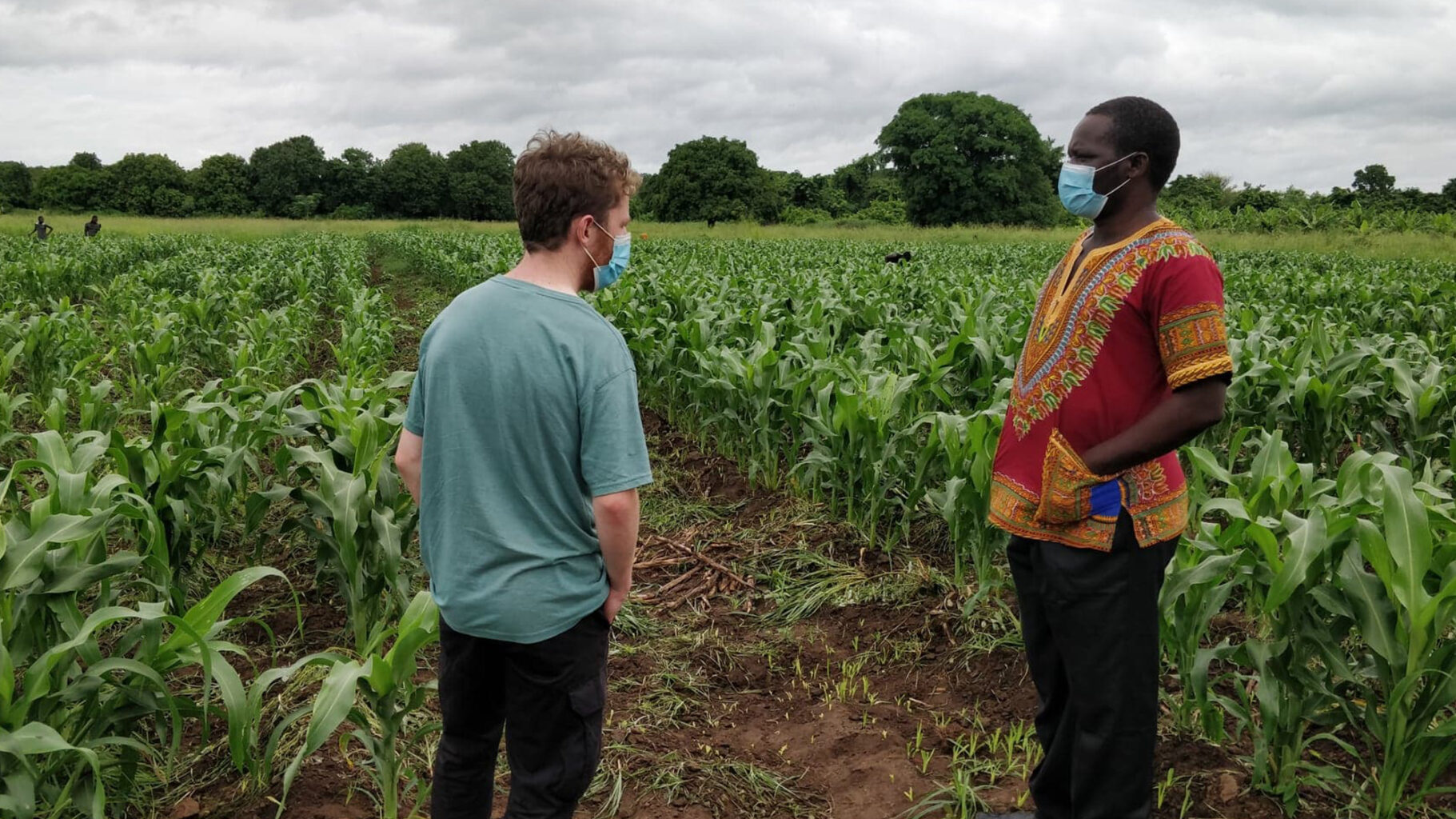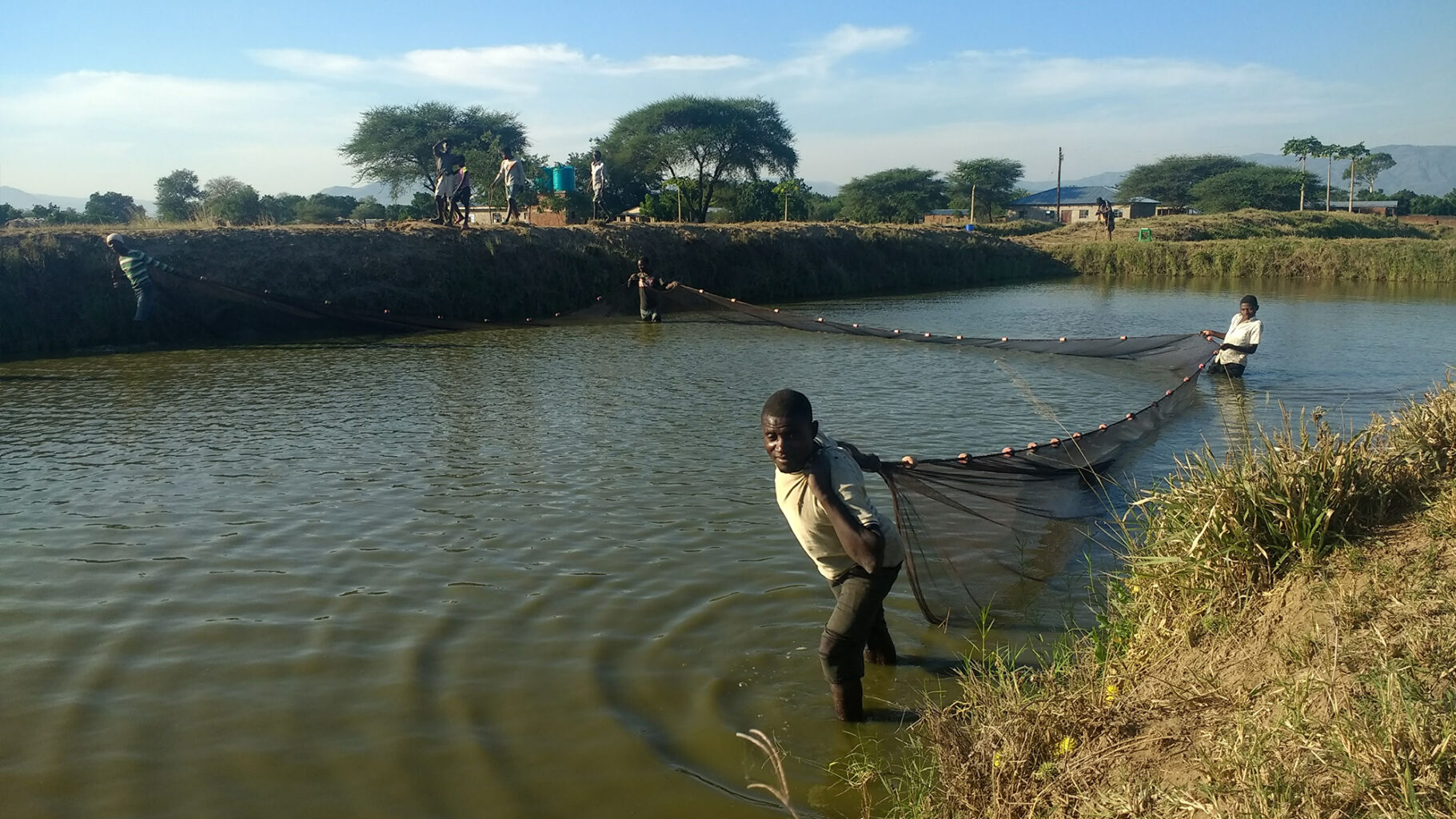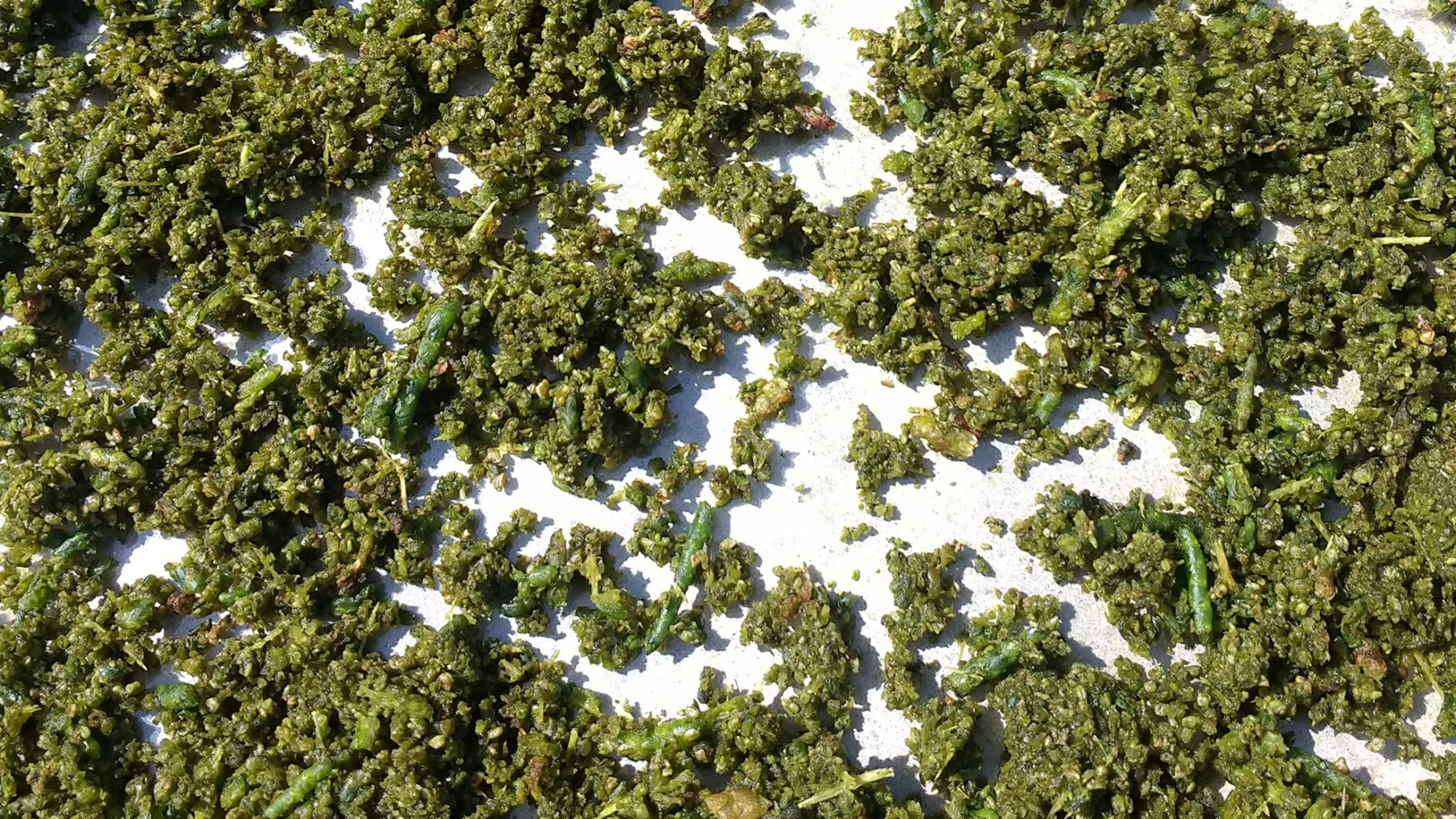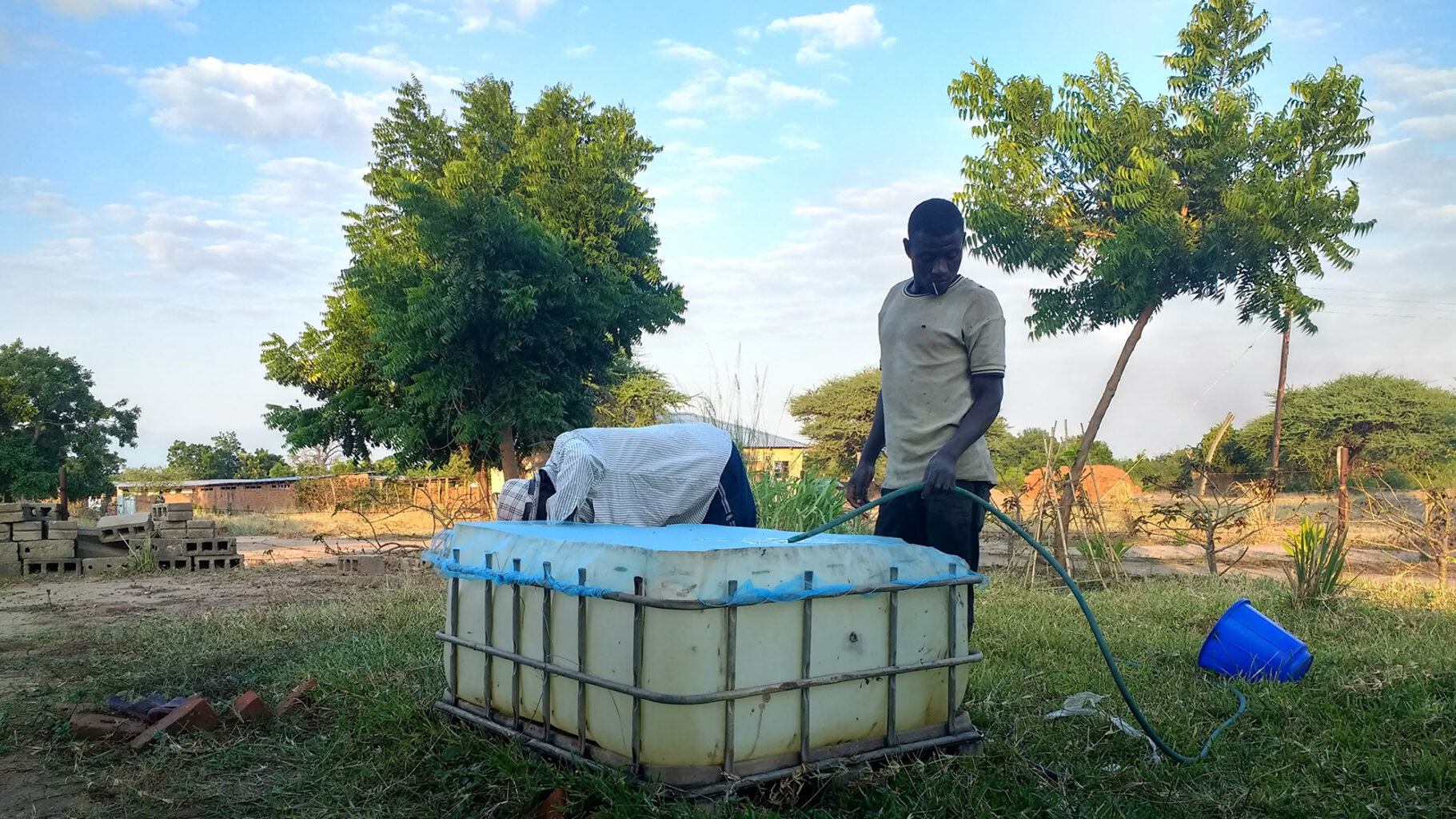By Chris Eccles, Seawater Solutions Environmental Coordinator

Well what a busy few weeks it’s been here in Chikwawa! The rains have come to an end but our crops will keep on growing right through the dry season by using the saline groundwater to grow our tasty halophytes.
Farmers generally rely on rain water during the summer months to grow their crops, most commonly maize, cotton, sorghum and rice. However due to recent effects of climate change, the rainfall has become inconsistent, resulting in poor harvests in the most vulnerable areas.

Therefore, the dry season often brings with it a few issues in Malawi, as a poor harvest will leave little for farmers to feed their livestock and fish during the long winter months. Many farmers will then resort to buying in feed from elsewhere which is an expensive alternative, or letting animals graze on what is left of the scrub and grasslands which have poor nutritional quality. The result is always the same: the animals lose condition and are sold for lower and lower prices at markets, putting financial pressures on the farming communities where resources are stretched.
Because of these issues, we are pleased to finally be setting up the first of hopefully many trials involving the use of Salicornia as a feed source for fish (chambo) during the dry season.

At our base here in Chonona Fisheries, the team have been working hard to design and set up a study which will monitor the growth rates of Tilapia fingerlings that have Salicornia added to their regular diet of rice bran. We will then compare their growth to a control group who will remain on their regular diet of purely rice bran.

It’s a simple concept but the implications are huge – if farmers can grow their own feed during the dry season without freshwater, then it will show that saline agriculture in Malawi can:
- Save costs
- Relieve pressure of fresh-water resources
- Increase quality and quantity of produce
- Encourage sustainable farming and aquaculture practices
We can’t wait to see what the fish have to show us!